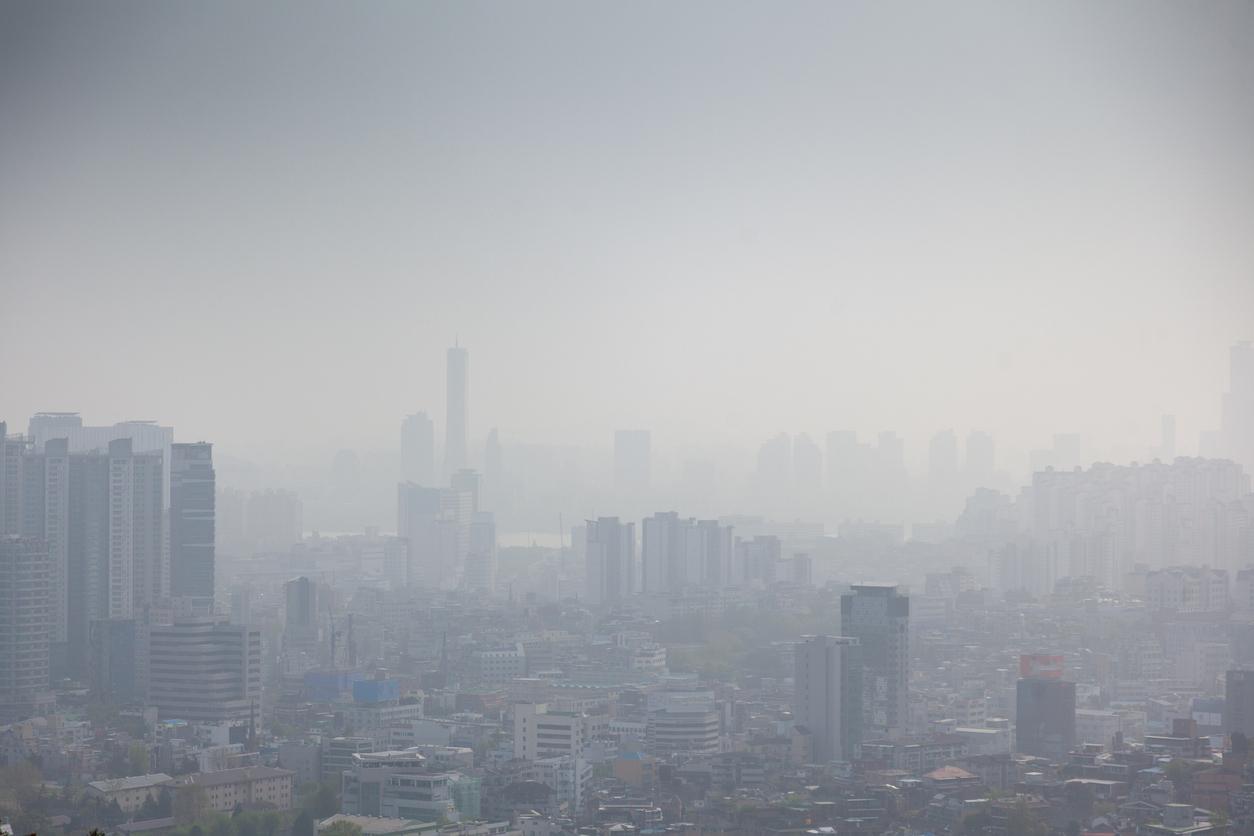Air pollution is associated with increased stress and depression, leading to an increased risk of death from cardiovascular disease before age 65.

- Air pollution is associated with poor mental health.
- This can increase the risk of cardiovascular disease and therefore premature death.
- This association is particularly evident in areas where levels of fine particle pollution exceed WHO recommendations.
“The air we breathe affects our mental well-being, which in turn impacts heart health.”, warns Dr. Shady Abohashem. This professor at Harvard Medical School in the United States led a study on the effects of air pollution on mental health and the risk of premature death. It was presented during the last Congress of the European Society of Cardiology, on April 26 in Athens.
How to analyze the effects of air pollution on mental and cardiovascular health?
This research was based on 3,000 American counties, or approximately 315 million inhabitants. The researchers worked on two main points: the participants’ level of exposure to pollution and their state of health. Using medical data retrieved from the Centers for Disease Control, the American health authorities, the researchers were able to count the number of days during which people experienced mental health problems, such as stress, depression or emotional problems. Scientists classified counties into three groups based on these numbers, with the first group being those with the highest number of days with poor mental health. Furthermore, figures indicate that 1,079,656 participants died from cardiovascular disease before the age of 65 in this sector, between 2013 and 2019.
At the same time, American researchers studied pollution levels in these geographic areas. They focused on particles less than 2.5 micrometers in diameter, called fine particles or PM2.5. “They come from vehicle exhaust, power plant combustion and wood burning and pose the highest health risk.”they indicate in a communicated. Depending on the county, exposure to PM2.5 was classified as high or low using World Health Organization (WHO) standards.

Cardiovascular disease and mental health: the double impact of air pollution
“Counties with high PM2.5 concentrations were 10% more likely to report high levels of poor mental health days compared to counties with clean air (low PM2.5 concentrations).”, note the authors. The link between poor mental health and premature cardiovascular mortality was strongest in counties with air pollution levels above those recommended by the WHO.
“In these counties, higher levels of poor mental health were associated with a three-fold increase in premature cardiovascular mortality compared to places with low numbers of poor mental health days.develop American scientists.
According to their analysis, a third of the risk of premature cardiovascular deaths linked to pollution is explained by the increase in “burden” mental health. “Our findings reveal a dual threat from air pollution: it not only worsens mental health, but also significantly amplifies the risk of heart health-related deaths associated with poor mental health, summarizes Dr. Abohashem. DPublic health strategies are urgently needed to address air quality and mental well-being to preserve cardiovascular health.”
















